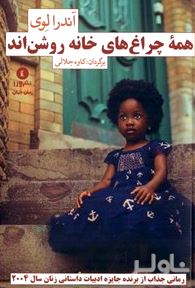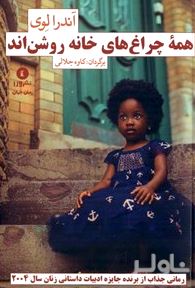|
نویسنده :
آندریا لوی
ناشر :
نشر ورا
۳/۸ از ۵
|
|||
|
نویسنده :
آندریا لوی
ناشر :
ورا
۳/۸ از ۵
|



